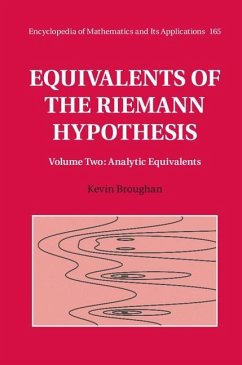The Riemann hypothesis (RH) is perhaps the most important outstanding problem in mathematics. This two-volume text presents the main known equivalents to RH using analytic and computational methods. The book is gentle on the reader with definitions repeated, proofs split into logical sections, and graphical descriptions of the relations between different results. It also includes extensive tables, supplementary computational tools, and open problems suitable for research. Accompanying software is free to download. These books will interest mathematicians who wish to update their knowledge, graduate and senior undergraduate students seeking accessible research problems in number theory, and others who want to explore and extend results computationally. Each volume can be read independently. Volume 1 presents classical and modern arithmetic equivalents to RH, with some analytic methods. Volume 2 covers equivalences with a strong analytic orientation, supported by an extensive set of appendices containing fully developed proofs.
Dieser Download kann aus rechtlichen Gründen nur mit Rechnungsadresse in A, B, BG, CY, CZ, D, DK, EW, E, FIN, F, GR, HR, H, IRL, I, LT, L, LR, M, NL, PL, P, R, S, SLO, SK ausgeliefert werden.


